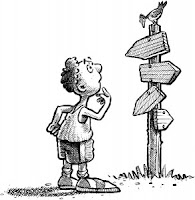Single-Parenting Children With Aspergers/High-Functioning Autism

One of the most difficult roles a mother or father will ever assume is that of the single parent. It doesn't matter how you arrived at that point – divorced, widowed, or single by choice – it is a daily challenge. When a mother or father is a single parent and there is a youngster with Aspergers or High-Functioning Autism (HFA) to care for, the challenges can make life feel like a true test of endurance, but it can be done. It does take more effort and organization, however. Although raising children always has challenges, single parenting a child with Aspergers or HFA can be extremely stressful – as well as rewarding. Finding solutions to most of the problems is the first step toward keeping the parent from feeling overwhelmed. Almost every problem has a solution. The real trick to success as a single parent is not losing yourself in the parenting process. There are some issues that every single parent needs to be aware. Working on the solutions before they become problem


